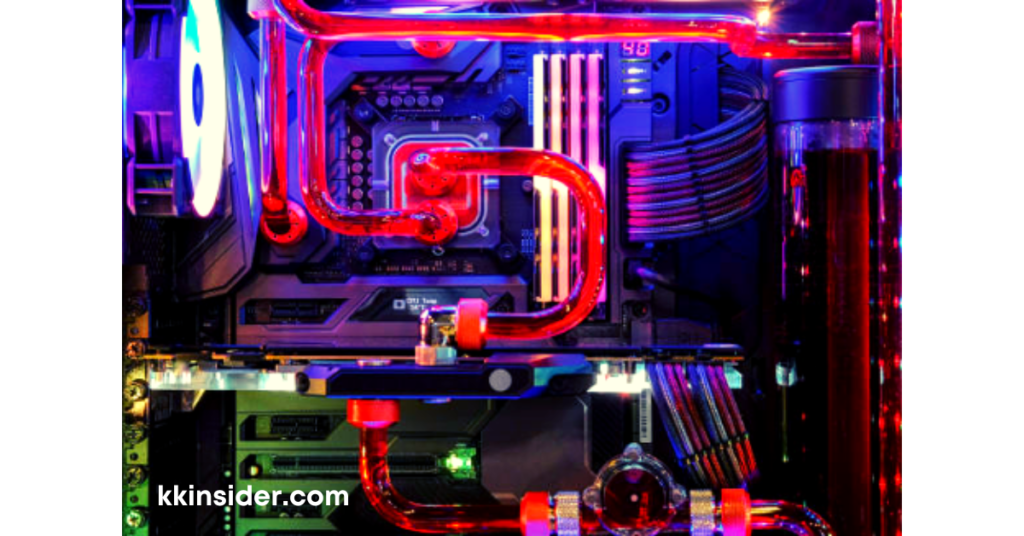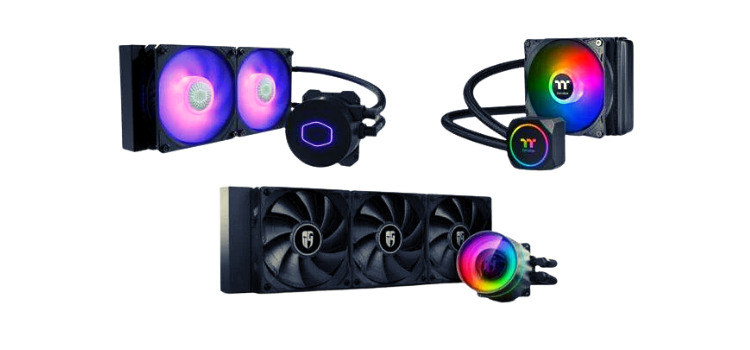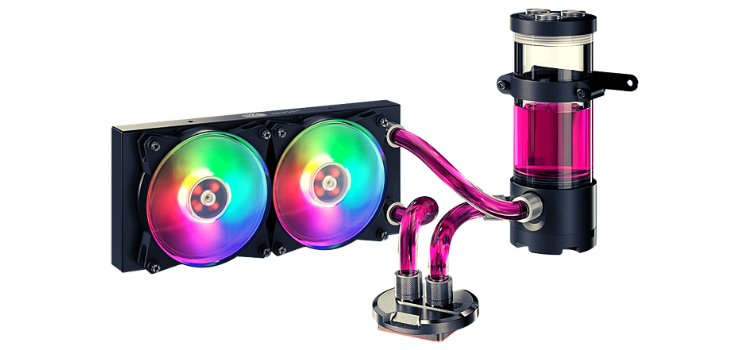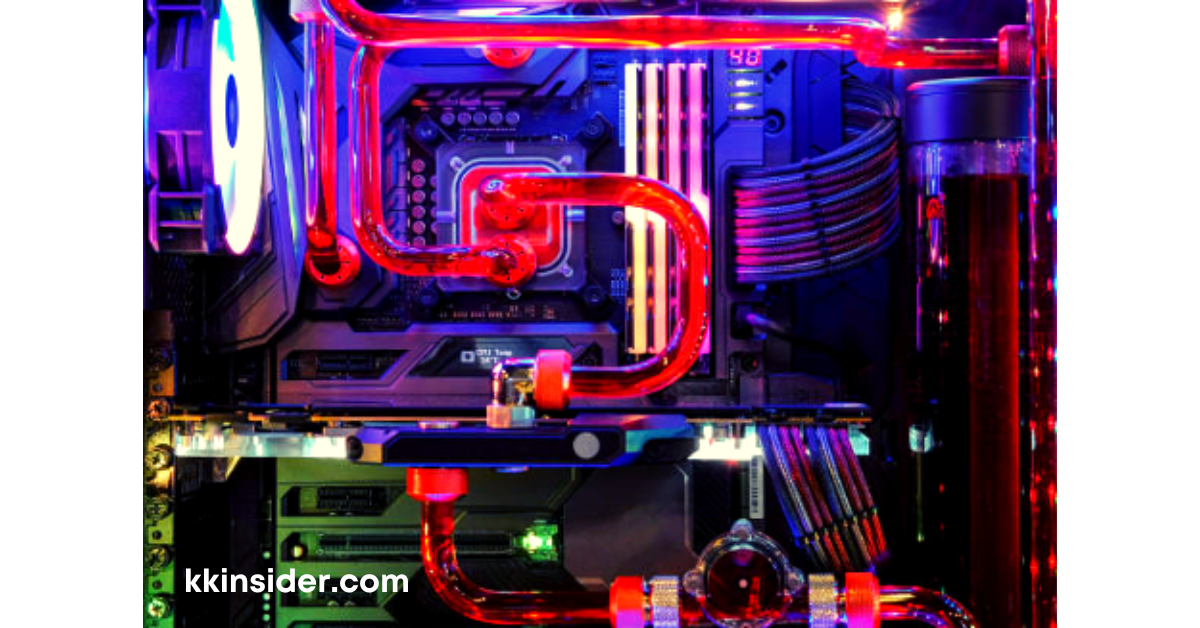Do you know what CPU cooler you have on your computer? If not, don’t worry; you’re not alone. Many people don’t know the make and model of their CPU cooler, which can make it difficult to find a replacement if needed.
This article will show you how to find out what CPU cooler you have in your machine. We will also provide tips on keeping your processor cool and running at its best!
What Is A CPU Cooler?

A CPU cooler is a device that helps to cool your processor. It does this by dissipating heat from the processor and into the air. Cooling your processor is important because it prevents your computer from overheating and shutting down.
There are many types of CPU coolers available on the market, ranging from simple air coolers to more complex water-cooled systems.
Types Of CPU Coolers
Air coolers are the most basic type of CPU cooler. They work by drawing air from outside the case and blowing it over the heat sink, a metal plate that helps dissipate heat away from the processor.
Water-cooled systems are more complex and use a liquid cooling system to remove heat from the processor. These systems typically have a radiator that helps dissipate the heat away from the water-cooling unit.
How To Find Out What CPU Cooler You Have

Looking At the Manufacturer’s Website
The best way to find out what CPU cooler you have is to look at the manufacturer’s website for your specific processor model. This information should be readily available in the “Specifications” or “Technical Details” section of the website.
Looking Online
Another way to find out what CPU cooler you have is to look online. Many websites will allow you to input your processor model and then tell you what the stock cooler is for that processor. This can be a helpful way to find out what CPU cooler you have if you do not have access to the manufacturer’s website.
Looking At The Physical Cooler
If you still cannot figure out what CPU cooler you have, another option is to look at the physical cooler itself. Many coolers will have the manufacturer’s name and model number printed on them. If no information is printed on the cooler, it may be difficult to determine which one it is. However, if you know the approximate size and shape of the cooler, you can try searching for it online.
Asking The Manufacturer
If you are still having trouble determining your CPU cooler, your last resort is to ask the manufacturer. They will likely be able to tell you which model of CPU cooler is compatible with your processor.
Checking Your BIOS
Another way to find out what CPU cooler you have is to check your BIOS. In the BIOS, there is usually a section that lists information about the components of your computer. This includes the make and model of your CPU cooler.
Checking The Manual
If you have the manual for your computer or motherboard, it should list the compatible CPU coolers. If you no longer have the manual, you may be able to find it online. Just search for the make and model of your motherboard or computer.
inspecting Your Cooler
If you take a look at your CPU cooler, you may be able to find a label with the make and model. This is usually located on the top or side of the cooler. If you can’t find a label, you may be able to identify the cooler by its shape and size.
Do Some Research
If you’re still having trouble finding out what CPU cooler you have, you can try researching online. Just search for the make and model of your motherboard or computer, followed by “compatible CPU coolers.” This should give you a list of compatible coolers you can compare to your own.
Ask for Help
If you’ve tried all of the above and you’re still not sure what CPU cooler you have, you can always ask for help from someone more knowledgeable about computers. You can post a question on a forum or contact customer support for your motherboard or computer manufacturer. With a little help, you should be able to figure out what CPU cooler you have.

Don’t Overlook the Obvious.
Finally, don’t overlook the obvious. If you bought your computer or motherboard pre-assembled, the CPU cooler would likely be listed in the specifications. This is especially true for laptops and all-in-one computers, which usually come with non-standard coolers integrated into the device’s design.
If you built your computer, you probably chose the CPU cooler yourself, so you should already know what it is. However, if you’re unsure or can’t remember, check the box or manual that came with your CPU cooler. It’s also possible to find this information online by searching for your motherboard model number.
Difference Between Air and Liquid Cooling
Air cooling systems use fans to circulate air around the CPU, while liquid cooling systems use water to absorb heat away from the CPU. Both types of coolers have their advantages and disadvantages.
Air coolers are typically cheaper than liquid coolers and easier to install. However, they are not as effective at cooling as liquid coolers and can be louder.
Liquid coolers are more expensive than air coolers but are much better at cooling your CPU. They can also be quieter than air coolers, although this depends on the quality of the cooler you purchase

Installing Your Cooler
Once you have chosen a cooler, it’s time to install it! Air coolers are usually pretty easy to install. You need to ensure that the cooler is the right size for your CPU and that you have enough case space.
Liquid coolers can be a little more difficult to install. In addition to ensuring that the cooler is compatible with your CPU, you also need to connect it to your water pump and radiator. This can be tricky, so if you’re not comfortable doing it yourself, you may want to get someone who knows what they’re doing to help you.
Conclusion
That’s all there is to finding and installing a CPU cooler! Whether you choose air or liquid cooler, as long as it’s compatible with your CPU and fits your case, you should be good to go. Just remember to consider the cooler’s noise level and how much airflow you need in your case.




2 comments
Good day! I just want to offer you a big thumbs up for your excellent information you have got here on this post. Ill be coming back to your blog for more soon.
Excellent article. I certainly love this website. Keep writing!